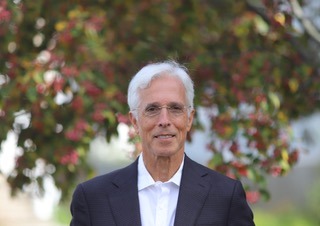Description
How can we help our patients/clients make constructive use of their profound but hard to articulate psychedelic experiences? How do we encourage meaningful exploration of psychedelic experience in the face of public and even personal doubts about the validity of psychedelically-attained “insights” or “knowledge”?
This experientially-based class will focus on techniques that psychedelic therapists can use to help the individuals they work with put the ineffable into words, and explore and deepen awareness of psychic states that are outside of language. We will be learning and practicing the kinds of questions and exploratory strategies that open rather than constrict narratives and focus on the process of experiencing rather than the objects of experience.
Claire Petitmengin’s micro-phenomenological interviewing method, from the text: Petitmengin, C. (2006). Describing one’s subjective experience in the second person: An interview method for the science of consciousness. Phenomenology and the Cognitive Sciences, 5(3-4), 229–269. https://doi.org/10.1007/s11097-006-9022-2, will be a core reference for the group process.
Each week, a member of the class will interview another member about a significant subjective experience drawn from a psychedelic journey, a vibrant memory, or an encounter with a work of art or musical experience. Petitmengin’s approach is rooted in phenomenology and informed by cognitive science, drawing on techniques from mindfulness and psychotherapy to create a replicable framework for accessing and describing subjective experience.
Through readings, dyadic practice, and group exploration, therapists will refine their skills to better support their clients in finding meaning in transformative experiences. The goal of this approach is the facilitation of contact with those aspects of pre-reflective experience which are often left out of narrative and conversational discourse. This unwavering focus on evoking details of the individual’s lived experience enables a trusting relational ambience often labeled as “holding space.”
This class will help therapists actively learn how to deepen, clarify, and validate experiences in the individuals they are working with. Through assigned readings, observation of dyads, and exploratory group process, students will learn a form of listening presence to use in clinical work. We will aim, as Edmund Husserl, an Austrian philosopher who wrote about phenomenology, stated: “to bring the as yet silent experience to purely express its own meaning” (Husserl, 1950, p. 77, quoted in Heimann, K., Boelsbjerg, H.B., Allen, C. et al., 2023).
A limited number of Diversity Fund scholarships are available, please complete this application, in addition to the course application.
Learning Objectives
- Formulate and apply open-ended questions that effectively explore and expand clients’ subjective experiences, ensuring measurable improvement in clients’ narrative clarity and articulation.
- Implement the micro-phenomenological interviewing method to facilitate the re-emergence of latent sensory, emotional, and cognitive dimensions of client experiences, as demonstrated through dyadic practice sessions.
- Assess and enhance their therapeutic presence by practicing active listening techniques that validate and deepen client trust, evidenced by peer and instructor feedback during group sessions.
- Design and execute structured interviews that prioritize “how” over “what” questions, enabling clients to articulate ineffable or pre-reflective experiences with greater specificity and insight.
- Demonstrate the ability to identify and navigate personal and societal biases surrounding psychedelic experiences, fostering a supportive and open therapeutic environment.
- Integrate phenomenological insights into their clinical work by adapting techniques to diverse therapeutic contexts, evaluated through group discussions and reflective exercises.
- Develop measurable strategies to evaluate the impact of therapeutic interventions on clients’ articulation of ineffable experiences, ensuring alignment with treatment goals.
- Cultivate an understanding of the ethical considerations involved in facilitating discussions of psychedelic experiences, ensuring professional standards are upheld in therapeutic practice.
- Apply mindfulness-based practices to sustain personal resilience and maintain focus during complex client interactions, enhancing the overall therapeutic process.
- Guide clients in integrating insights gained during psychedelic experiences into actionable goals within their broader life context.
- Use micro-phenomenological techniques to support clients in identifying and deepening their understanding of recurring themes in their psychedelic journeys.
- Facilitate group discussions that model reflective and open-ended dialogue techniques for exploring psychedelic experiences.
- Adapt the micro-phenomenological interview process to address diverse client backgrounds, ensuring an inclusive approach to psychedelic integration.
- Critically reflect on their own use of the micro-phenomenological method in practice, using feedback and self-assessment to refine their therapeutic approach.
Continuing Education
- Fluence International, Inc. is approved by the American Psychological Association to sponsor continuing education for psychologists. Fluence maintains responsibility for this program and its content.
- Fluence International, Inc. is recognized by the New York State Education Department’s State Board for Mental Health Practitioners as an approved provider of continuing education for licensed mental health counselors. #MHC-0232.
- Fluence International, Inc. is recognized by the New York State Education Department’s State Board for Social Work as an approved provider of continuing education for licensed social workers #SW-0674.
- Fluence International, Inc. is recognized by the New York State Education Department’s State Board for Psychology as an approved provider of continuing education for licensed psychologists #PSY-0167.
- The Department’s approval of a provider of continuing education does not constitute the Department’s endorsement of the content, positions or practices that may be addressed in any specific continuing education course offered by the approved provider.
- For questions about receiving your CE/CME Certificate or Certificate of Attendance, contact Drew Ribadeneyra, drew@fluencetraining.com.


